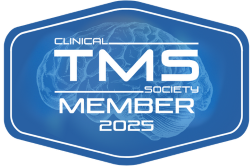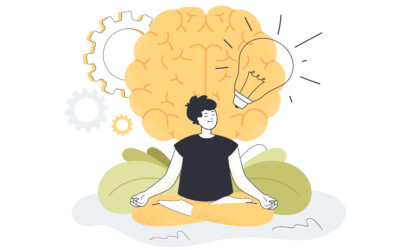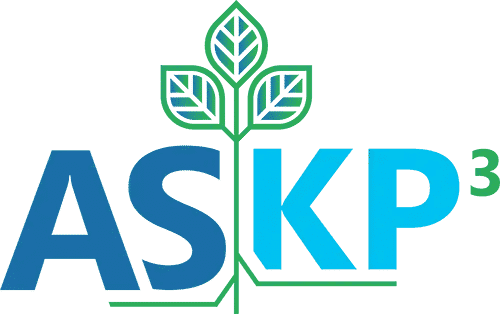TMS THERAPY

TRANSCRANIAL MAGNETIC STIMULATION | TMS THERAPY IN RHODE ISLAND
TMS THERAPY WITH BLUEWATER PSYCHIATRY
Transcranial Magnetic Stimulation (TMS therapy) is:
- Cutting-edge and FDA-approved
- Non-invasive and drug-free
- Used for depression and other mood disorders
- Focused on stimulating nerve cells in the dorsolateral prefrontal cortex (area responsible for mood regulation)
Benefits of TMS:
- Ideal for those who haven’t responded to antidepressants
- Suitable for individuals seeking a medication-free option
What to expect from TMS sessions:
- Delivered as outpatient care
- Patients remain awake and alert
- Each session lasts 20–40 minutes
- Uses gentle magnetic pulses to reset brain activity
- Helps enhance brain function and reduce depression symptoms
- Many patients notice improvements in:
- Mood
- Energy levels
- Overall well-being within a few weeks
ACCELERATED TMS THERAPY
Accelerated TMS can be used:
- Alone
- In combination with medication
- Alongside psychotherapy for enhanced outcomes
Bluewater Psychiatry is:
- The only TMS clinic in Rhode Island offering Accelerated TMS
- The only IV Ketamine treatment center in the state
Why combine Ketamine + TMS?
- Provides a comprehensive treatment strategy
- Supports immediate and long-lasting results
For eligible patients, Bluewater Psychiatry also offers:
- IV Ketamine treatments
- Personalized Ketamine-Assisted Psychotherapy sessions
Our goal at Bluewater Psychiatry:
- Make TMS accessible, efficient, and effective
- Offer new solutions to those struggling with depression
At Bluewater Psychiatry, we are proud to offer these innovative, science-backed treatments as part of our commitment to mental wellness. Our experienced team is dedicated to providing compassionate care and personalized treatment plans tailored to each patient’s needs. Whether you are seeking an alternative to medication or exploring new ways to manage depression, TMS could be the breakthrough you’ve been searching for.
Highly Effective Depression Treatment
Studies show that approximately 60% of individuals with treatment-resistant depression experience a clinically significant improvement in their symptoms after a course of TMS therapy.
High Remission Rate
Remission rates range from 30% to 50%, and in some newer, more targeted TMS protocols, remission rates have been reported as high as 79% to 90%.
Long Lasting Relief
Studies indicate that a significant number of responders experience sustained improvement in their mood, energy levels, and overall well-being for months and even up to a year or more after completing the initial treatment course.
TMS THERAPY EFFECTIVELY TREATS THE FOLLOWING CONDITIONS:
Treatment-Resistant Depression (TRD)
Major Depressive Disorder (MDD)
Bipolar Depression
Under medical supervision
Obsessive Compulsive Disorder (OCD)
FAQs ABOUT TRANSCRANIAL MAGNETIC STIMULATION (TMS)
How does TMS work?
TMS uses magnetic pulses to stimulate nerve cells in areas of the brain linked to mood control. This stimulation helps restore normal brain activity and alleviate symptoms of depression.
Is TMS safe?
Yes. TMS is FDA-approved and has been extensively researched for safety and effectiveness. It is a non-invasive treatment with minimal side effects, typically limited to mild scalp discomfort or headaches that subside quickly.
How many sessions will I need?
A standard TMS treatment plan includes five sessions per week for four to six weeks. However, the exact duration may vary based on individual needs.
Does TMS therapy require anesthesia or medication?
No. TMS is an entirely non-invasive and drug-free treatment, requiring no anesthesia or sedation. Patients can resume normal activities immediately after each session.
Who is a good candidate for TMS therapy?
TMS is ideal for individuals who have not responded well to traditional antidepressants or those looking for a medication-free option. A consultation with our team will help determine if TMS is the right fit for you.
Is TMS painful? What are the side effects?
While TMS therapy is generally considered non-invasive and well-tolerated, some patients may experience mild to moderate discomfort during or after the sessions. It’s often described as a tapping sensation on the scalp.
Here’s a breakdown of the most common side effects:
- Tapping sensation
- Scalp discomfort
- Headache
- Facial twitching
- Hearing changes
Most side effects are mild and short-lived, improving shortly after the session. You can usually return to your normal daily activities immediately after treatment.
ARE YOU READY TO EXPLORE TMS THERAPY?
Ready to discover a new path to mental wellness? If you’ve explored traditional treatments without finding the lasting relief you deserve, Transcranial Magnetic Stimulation (TMS) therapy might be the answer. This innovative, non-invasive treatment uses gentle magnetic pulses to stimulate specific areas of the brain associated with mood regulation, offering a promising alternative for conditions like depression, OCD, and anxiety. Take the next step in your journey towards a brighter future by learning more about how TMS works and if it’s the right fit for you.
ARTICLES ABOUT TMS THERAPY
Understanding Ketamine Treatment and Power of Disassociation
The benefits of ketamine treatment for mental health mood disorders like anxiety, depression, and PTSD are well documented, with many patients reporting quick and lasting results. One of the drug’s characteristics that is believed to be so beneficial to patients is...
Importance of Building a Support System: The Role of Friends, Family, and Therapy
Personal connection is at the heart of human experience. Building a support system of friends, family, and professionals can impact your physical and mental health in more ways than you might imagine. For example, the right support system can add years to your life....
Beyond the Drip: How Your Mindset and Surroundings Enhance Ketamine Therapy
In the realm of mental health treatment, ketamine therapy has emerged as a groundbreaking intervention, offering hope to those battling depression and related conditions. Yet, amidst the focus on the pharmacological aspects of ketamine infusions, the significance of...
Request a Free Consultation
Are you a candidate for ketamine infusions or psychiatric services? Request a free evaluation with Dr. Randy Freeman and find out how we can help you achieve your mental, emotional, and behavioral goals.
Office Hours
Monday: 9am-5pm
Tuesday: 9am-5pm
Wednesday: 9am-8pm
Thursday: 9am-5pm

A MEMBER OF ZENCARE RHODE ISLAND





